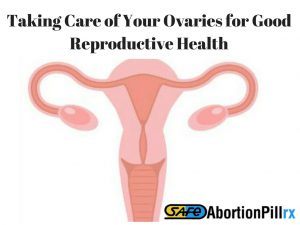
Reproductive age in a woman’s life is one of the most dynamic phases and poses great mental and physical challenges. If you do sustain good reproductive health, your bodily cycles will be regular and you can further take good care of it.
Your crucial aim must be to nourish your reproductive system failing in which you may not be able to revive some of your most important body functions. For instance, there may be a loss in ovarian function before the age of 40. This condition is called Premature Ovarian Failure (POF) or Primary Ovarian Insufficiency. It can be treated but not cured completely.
How to maintain good reproductive health:
Sometimes the causative agents for such diseases can be genetic. Otherwise, a healthy happy lifestyle can be sufficient to keep them at bay.
- Stay happy
A stress free life supports ovary health and a balanced hormonal cycle. Increased stress levels may put your periods temporarily at halt due to a hormonal imbalance.
Unwind by inculcating stress management practices like yoga, meditation or massages in your routine.
- Eat well
Make your diet a hormone-helping one. This will program your glands for proper secretion of hormones.
Avoid junk. Include Maca, Shatavari, Vitex, Royal jelly, and foods containing Calcium and Vitamin D in you diets.
- Exercise regularly
High fat diets provide our body with excessive amounts of estrogen which is an important hormone in females. But higher levels, especially with fats stored around the belly, paves way for cancers.
Manage your BMI by incorporating exercise in your lifestyle.
- Take hormonal contraception with care:
Hormone contents in contraceptives override our natural ones and it takes time for our body to settle back to the natural cycles.
Take a period of 3-4 months before you plan on getting pregnant to avoid stress to the reproductive system.
Suspect ovaries in bad health if:
- Your periods are irregular
Irregular periods are a sign that you aren’t ovulating regularly. There may be anovulation, oligoovulation or irregular ovulation. Any of these cases would mean that your ovaries are producing unhealthy eggs or aren’t functioning effectively.
- You are unable to conceive after a year of unprotected sexual intercourse
A proportion of these cases do occur due to male infertility. However, a physician’s opinion might tell exactly. It is important to communicate this to him and your partner.
- You smoke or drink
The effect of such a lifestyle on ovaries is prolonged and dose-dependant. For good ovarian health, or reproductive health in general, to quit smoking and alcohol intake should be your priority. If you fail to do so, your eggs are more prone to abnormalities and miscarriages.
- Someone else in your family has it
A number of causative genes and chromosomal aberrations have been identified to be related to reproductive disorders. And thus, if you don’t relate to the other causes, your disease might just be genetic.
- You underwent depression
There is a strong link between mental health and reproductive health. Stress, depression and anxiety have been identified as risk factors for ovarian disorders.
- You are exposed to certain chemicals at work
Data from population-based samples of women from various occupations, who responded to surveys was assessed in all eligible participants by self-report of a doctor’s diagnosis. RESULTS showed that women exposed to certain chemicals like synthetic dyes or BPA were more susceptible to reproduction related disorders.


